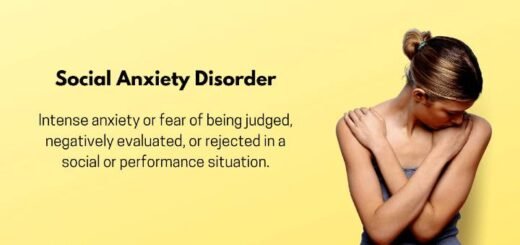Boosting Confidence: CBT Strategies for Social Phobia
Cognitive Behavioral Therapy (CBT) plays a pivotal role in addressing social phobia, particularly in enhancing self-confidence among individuals facing social anxiety. In New Zealand, where mental health awareness is growing, CBT techniques offer practical strategies for overcoming the debilitating effects of social phobia. By focusing on changing negative thought patterns and behaviors, CBT empowers individuals to cultivate social confidence strategies that enable them to navigate social situations with greater ease and assurance.
Incorporating specific social confidence strategies, such as exposure therapy and cognitive restructuring, can significantly improve an individual’s ability to engage socially. These techniques not only reduce anxiety but also foster a sense of accomplishment and self-efficacy. Resources available through local organizations, such as Social Phobia New Zealand, provide valuable insights and support for those seeking to build their self-confidence and overcome social phobia effectively.
The Role of Cognitive Behavioral Therapy in Social Phobia: Techniques for Building Self-Confidence
Understanding Social Phobia
Social phobia, also known as social anxiety disorder, is a prevalent condition characterized by an intense fear of social situations. Individuals with social phobia often worry excessively about being judged or embarrassed in public. This fear can significantly impact daily life, making it challenging to engage in routine activities like attending social gatherings or even speaking in public. In New Zealand, where community and social interactions are valued, this condition can lead to isolation and decreased quality of life.
The symptoms of social phobia can manifest in various ways, including physical reactions like sweating, trembling, or blushing during social interactions. Cognitive Behavioral Therapy (CBT) is a well-established treatment that focuses on altering negative thought patterns and behaviors associated with social phobia. Through CBT, individuals can learn to reframe their perceptions of social situations, leading to reduced anxiety and increased self-confidence.
Core Principles of Cognitive Behavioral Therapy
Cognitive Behavioral Therapy operates on the premise that our thoughts, feelings, and behaviors are interconnected. By changing negative thoughts, we can alter our emotional responses and behaviors. In the context of social phobia, CBT aims to identify and challenge irrational beliefs that fuel anxiety.
For example, a person may hold the belief that “everyone is watching me and judging me” during social events. CBT encourages individuals to evaluate this belief, recognizing that it is often exaggerated or unfounded. By using evidence to counter these thoughts, individuals can develop healthier perspectives, reducing their anxiety and enhancing their social confidence.
Moreover, CBT incorporates various techniques, including cognitive restructuring, exposure therapy, and relaxation strategies, to help individuals gradually confront their fears. This structured approach is particularly effective in building self-confidence, making it a valuable resource for those struggling with social phobia.
Exposure Therapy: Facing Fears Gradually
One of the most effective techniques within CBT for treating social phobia is exposure therapy. This involves gradually facing feared social situations in a controlled manner. The idea is to start with less intimidating scenarios and progressively work towards more challenging experiences.
For instance, someone in New Zealand might begin by initiating small conversations with a cashier or a neighbor. As they gain confidence, they can move on to larger social settings, such as community events or social gatherings. By consistently facing these situations, individuals can diminish their fear response and develop coping strategies tailored to their experiences.
A practical tip for exposure therapy is to create a hierarchy of social situations ranked from least to most anxiety-provoking. This allows individuals to visualize their progress and encourages them to celebrate small victories along the way. Engaging with local support groups or organizations, like those found at Social Phobia New Zealand, can also provide encouragement and shared experiences.
Cognitive Restructuring: Changing Negative Thoughts
Cognitive restructuring is a fundamental component of CBT that focuses on identifying and challenging negative thought patterns. Many individuals with social phobia hold irrational beliefs about themselves and their social interactions. For example, they may think, “If I say something wrong, everyone will laugh at me.”
Through cognitive restructuring, individuals learn to recognize these distorted thoughts and replace them with more realistic and positive affirmations. This process involves examining the evidence for and against these thoughts, which can help individuals develop a more balanced perspective.
In New Zealand, incorporating cultural elements into cognitive restructuring can enhance its effectiveness. For instance, acknowledging the diversity of social interactions in Māori or Pacific Islander communities can help individuals see that social mistakes are a normal part of interaction. By embracing the idea that everyone makes mistakes, individuals can build their self-confidence and reduce their fear of judgment.
Developing Social Skills: Practical Techniques
Building self-confidence also involves enhancing social skills. CBT emphasizes the development of practical techniques to navigate social interactions effectively. This can include practicing active listening, maintaining eye contact, and using open body language.
Role-playing exercises can be particularly helpful, allowing individuals to practice these skills in a safe environment. For example, a person might rehearse introducing themselves in a mirror or with a therapist. This practice not only builds confidence but also helps to desensitize individuals to the anxiety associated with social situations.
In New Zealand, taking advantage of local community workshops or training sessions focused on communication skills can provide valuable opportunities for practice. Engaging in these activities allows individuals to meet others with similar challenges, fostering a sense of community while improving their social confidence.
Mindfulness and Relaxation Techniques
Incorporating mindfulness and relaxation techniques into CBT can significantly enhance its effectiveness in treating social phobia. Mindfulness encourages individuals to stay present, reducing anxiety about future social interactions. Techniques such as deep breathing, progressive muscle relaxation, or mindfulness meditation can help individuals manage their physiological responses to anxiety.
For instance, before attending a social event, a person might practice deep breathing exercises to calm their nerves. By focusing on their breath and grounding themselves in the present moment, they can alleviate feelings of panic and anxiety.
In New Zealand, outdoor mindfulness activities like yoga in the park or guided nature walks can provide a peaceful environment for practicing these techniques. Connecting with nature can also offer a sense of tranquility, which is beneficial for individuals seeking to enhance their self-confidence in social situations.
Creating a Supportive Environment
Lastly, creating a supportive environment is crucial for individuals dealing with social phobia. This includes fostering connections with friends, family, and support groups who understand their struggles. A strong support system can provide encouragement and reassurance, which is vital for building self-confidence.
Encouraging open communication about anxiety can help others understand the challenges faced by those with social phobia. Additionally, joining local support groups in New Zealand, such as those found at Social Phobia New Zealand, can help individuals connect with others who share similar experiences. Sharing stories and coping strategies within a group can be incredibly empowering, reinforcing the idea that they are not alone in their journey toward overcoming social anxiety.
In conclusion, CBT offers a comprehensive framework for addressing social phobia through various techniques that build self-confidence. By understanding the disorder, utilizing exposure therapy, cognitive restructuring, developing social skills, practicing mindfulness, and creating a supportive environment, individuals can effectively manage their anxiety and foster a more fulfilling social life.
FAQs
What is Cognitive Behavioral Therapy (CBT) and how does it help with social phobia?
Cognitive Behavioral Therapy is a structured, time-limited psychotherapy that focuses on identifying and changing negative thought patterns and behaviors. In the context of social phobia, CBT helps individuals understand their fears, challenge negative beliefs about themselves, and gradually expose themselves to social situations, which can lead to increased social confidence.
What are some common techniques used in CBT for social phobia?
Common techniques include cognitive restructuring, exposure therapy, and social skills training. Cognitive restructuring involves identifying and altering distorted thoughts, while exposure therapy gradually exposes individuals to feared social situations. Social skills training teaches practical skills for interacting with others, all contributing to effective social confidence strategies.
How can I integrate social confidence strategies into my daily life?
To integrate social confidence strategies, start by setting small, achievable goals for social interactions. Practice positive self-talk, visualize successful interactions, and gradually face social situations that cause anxiety. Engaging in role-playing exercises and seeking feedback from trusted friends can also bolster your confidence over time.
Is CBT effective for everyone with social phobia?
While CBT is highly effective for many individuals with social phobia, its effectiveness can vary. Factors such as the severity of the phobia, individual motivation, and the presence of co-occurring disorders can influence outcomes. It’s important to work closely with a qualified therapist to tailor the approach to your specific needs.
How long does it typically take to see improvements with CBT for social phobia?
The duration of CBT varies depending on individual circumstances, but many people begin to see improvements within 12 to 20 sessions. Consistent practice of social confidence strategies outside of therapy can accelerate progress and help maintain the gains achieved during sessions.
Are there any self-help resources available for CBT and social phobia?
Yes, there are numerous self-help books, online courses, and support groups focused on CBT and social phobia. Many resources provide practical exercises and social confidence strategies to help individuals confront their fears and develop their social skills independently.
Can medication be a part of the treatment plan for social phobia alongside CBT?
Yes, medication can be a helpful adjunct to CBT for some individuals with social phobia. Antidepressants and anti-anxiety medications may be prescribed to help manage symptoms. It’s essential to consult with a healthcare professional to discuss the best treatment options based on individual needs and circumstances.
References
- Social Phobia Support – New Zealand – A dedicated resource providing information, support, and strategies for individuals dealing with social phobia, emphasizing the role of therapies like CBT.
- Cognitive Behavioral Therapy for Social Anxiety Disorder: An Update – A comprehensive review of CBT techniques specifically tailored for social anxiety disorder, highlighting effectiveness and practical applications.
- Cognitive Behavioral Therapy for Social Anxiety – An informative article discussing how CBT helps in managing social anxiety and building self-confidence through specific techniques.
- Cognitive Behavioral Therapy (CBT) – An overview of CBT, its principles, and its applications in treating various anxiety disorders, including social phobia.
- Cognitive Therapy: A Powerful Tool for Social Anxiety – An article from the American Psychological Association detailing the effectiveness of cognitive therapy techniques in overcoming social anxiety challenges.




